Your chicks just hatched, and you are wondering how long can chicks stay in the incubator once they hatch. No more worrying about these things, stay with us.
You will know all the FAQs about incubation and your main query, how long can chicks remain in the incubator?
Let’s start.
How Long Can Chicks Stay in an Incubator?
Normally chicks after hatching need to stay in the incubator for 12 to 48 hours to completely dry out and the peeping of the hatched chicks will encourage other chicks that have pipped to hatch faster.
It’s not recommended to keep your new babies in the incubator for more than 48 hours, as they affect their overall health.
Whenever your chicks appear dry, active, and fluffy, you can remove them from the incubator.
Remember that early removal of your chicks from the incubator can cause many problems for your chicks.
Also, keep in mind that it’s recommended not to open the incubator until the last chick hatches.
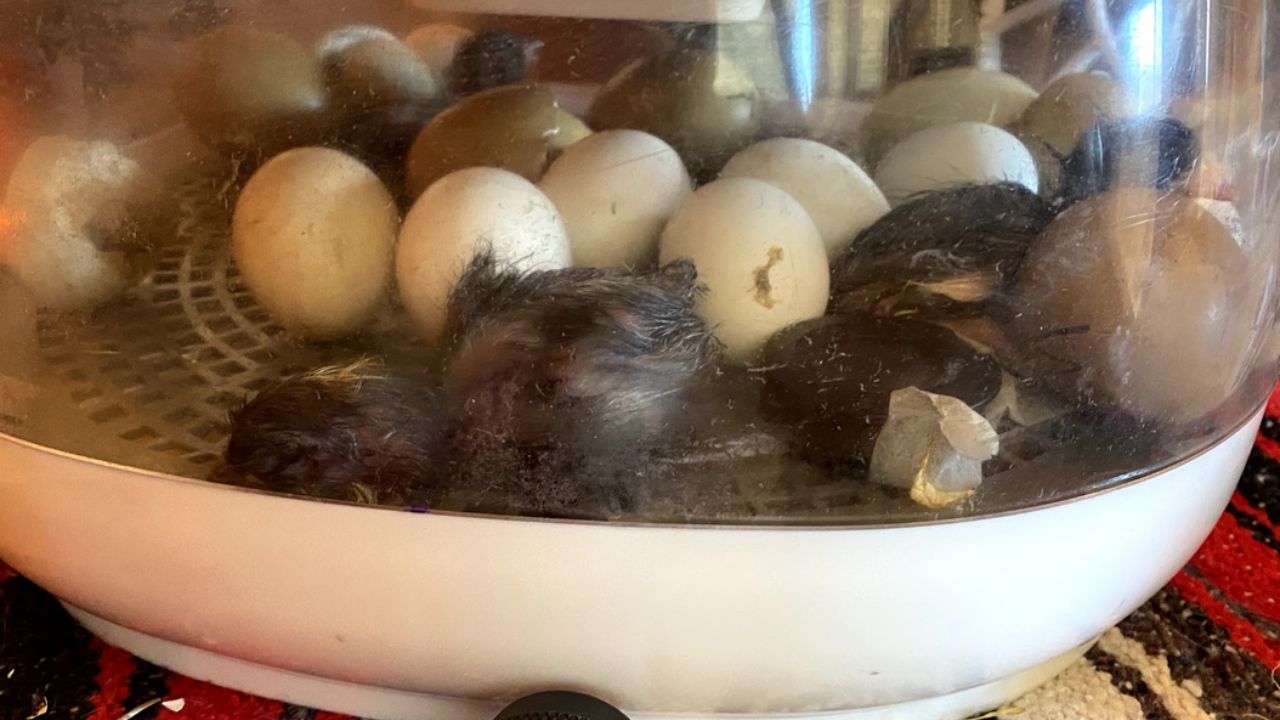
How Long Can Chicks Stay in a Brooder?
If in the incubator, your chicks should be in it for 12 to 48 hours, what about the brooder?
In the brooder, your chicks should stay for approximately 6 weeks or until they grow their mature feathers.
Once your chicks reach 3 to 4 weeks of age, they can leave the brooder.
For Chicks, is staying in the Incubator necessary or not?
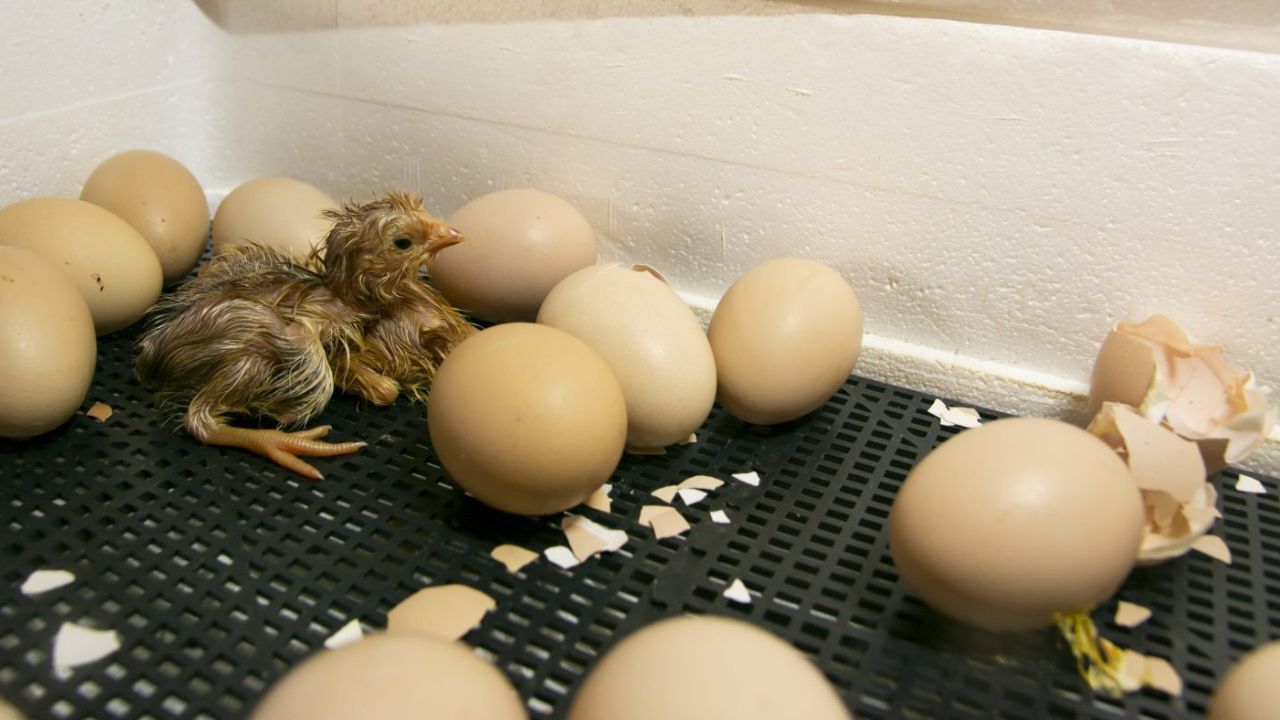
When an Incubator May Not Be Necessary For Chicks?
In some cases, chicks may not need an artificial incubator if they have a broody hen that can naturally provide the necessary warmth, protection, and care.
However, this natural brooding method can be unpredictable, as not all hens will stay broody or care adequately for all chicks.
How long does it take for a Chicken Egg to Hatch in an Incubator?
After 18 days of turning the eggs, you need to stop turning the eggs for the last 3 days.
It takes 21 days for an egg to hatch in an incubator if the temperature and humidity are at optimum levels.
Ensure the optimum temperature during the incubation of eggs, as higher and lower temperatures can cause problems.
Remember not to open the incubator until the chicks hatch.
Should I Wash Chicken Eggs Before Incubating and Hatching?
It’s important to avoid washing dirty eggs or wiping them with a damp cloth. When you do this, the egg’s natural protective coating called a “bloom” or “cuticle” gets removed and germs can easily enter through the shell.
Moreover, washing and rubbing the eggs can push microorganisms or disease organisms inside the egg’s pores.
Therefore, it’s best to leave eggs as they are, without trying to clean and wash them, to ensure their safety and proper incubation.
It doesn’t mean that the eggs are heavily soiled or dirty or poop on them and you still don’t clean them.
Remove any dirt or soiling, and avoid eggs that are heavily soiled with poop.
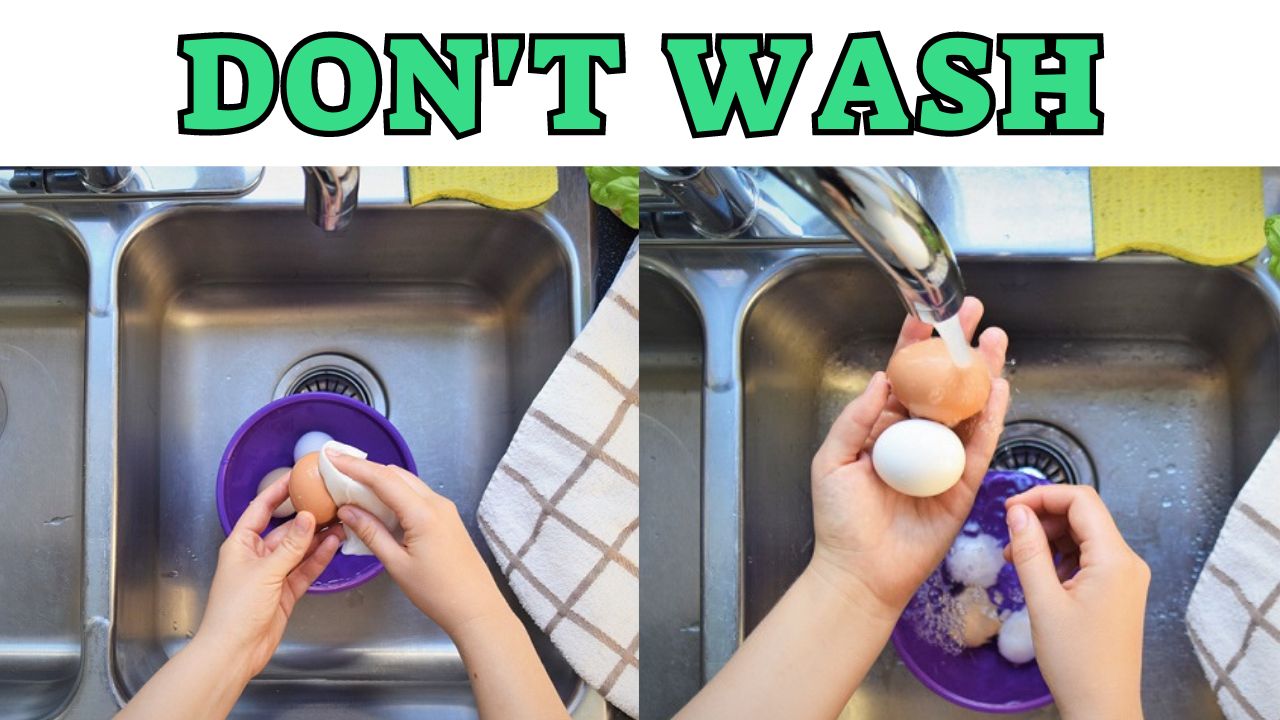
Why do Eggs Explode in an Incubator?
Eggs exploding in an incubator occur when a gas-producing bacteria, usually, Pseudomonas spp are present inside the egg.
This bacteria creates pressure in the eggs, as there is no way in the egg to remove that pressure and steam. That is why even a small vibration can trigger an explosion.
Ensure that you remove the infertile, heavily dirty, and dead eggs from the incubator as soon as possible, as they are at high risk of exploding.
How many times a day should you turn Chicken Eggs in incubators?
The turning period starts from day 1 to day 18 of incubation and from day 19 to day 21 you should stop turning eggs.
If you don’t have time to turn eggs and use an automatic turner for your eggs, make sure to remove it on day 18.
Turning the eggs during incubation helps prevent embryo death, unhealthy hatches, and the embryo from sticking to the membrane, which hinders development.
A mother then turns her eggs several times every hour to ensure that her little ones get evenly heated. Thus, turning eggs is a natural way to ensure proper hatching and prevent problems.
At last, it is important to turn eggs at least five times within 24 hours, if possible, once per hour.
Additionally, make sure the eggs are not left in the same position overnight,t as this is the longest period without rotation.
How long can Chicks survive in an Incubator without Food and Water Access?
Once the incubation is completed and the chicks are fully hatched, they survive up to 2 or 3 days without access to food and water.
Newly hatched chicks can survive by utilizing nutrients present in their yolk sac.
This is how hatcheries can ship chicks nationwide with minimal to no losses.
What is the Ideal Temperature for Incubating Chicken Eggs?
The incubator should be 100°–102°F (37.7–38.8°C). In some incubators, 99°F (37.2°C) is acceptable.
Temperatures 103°F (39.4°C) and over will kill embryos, and temperatures below 99°F (37.2°C) will increase the number of physically disabled and deformed chicks.
Use a thermometer to monitor the temperature, but remember to place it in the middle of the incubator near eggs on the screen, not under the screen or on the sides of the incubator.
What is the Best Humidity for Incubating Chicken Eggs?
The optimum humidity levels during incubation should be maintained between 50% and 55%.
And in the last three days (the lockdown period), increasing the humidity level to about 65-70% is recommended.
A humidity level below normal or a High humidity level above normal will cause problems, especially in hatching.
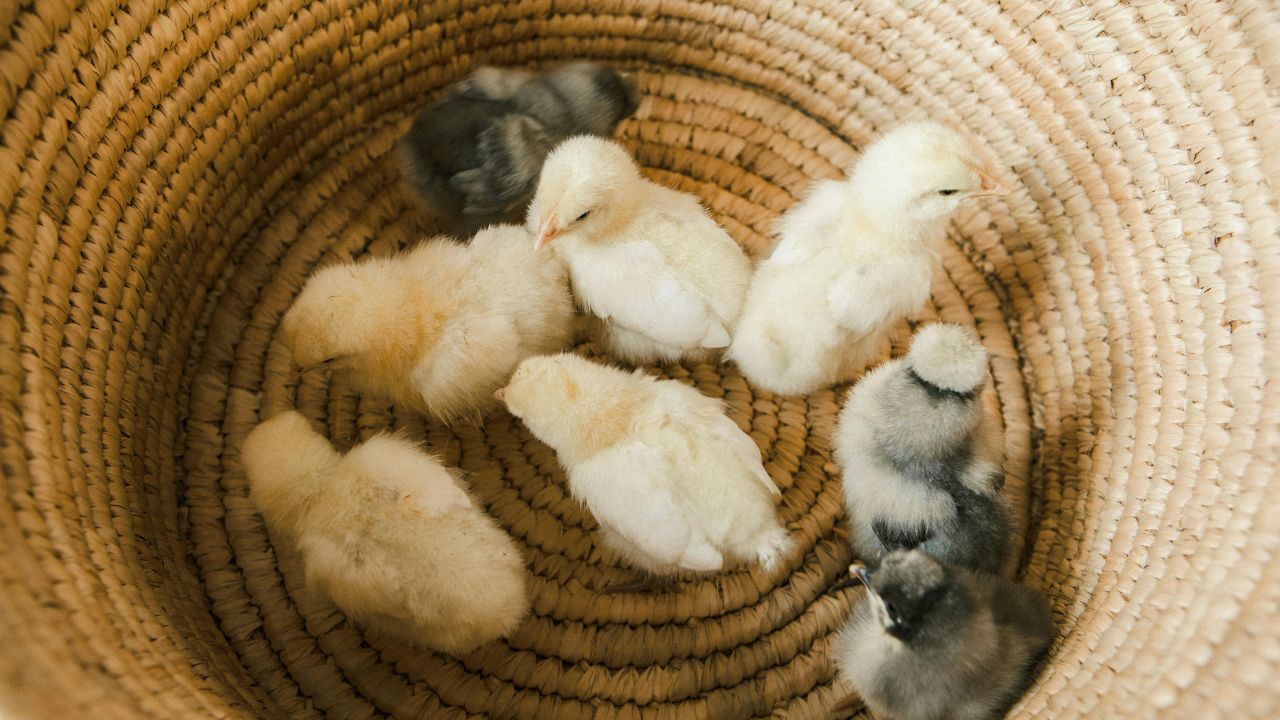
What to do when Chicken Eggs Don’t Hatch in 21 Days?
If the eggs don’t hatch after 21 days of incubation, no worries; it is normal in some conditions.
Most of the eggs hatch in 21 days, but some can take 2 to 3 more days to hatch.
But if they still don’t hatch and you don’t hear any peeps or egg movement, then there is a high probability that the embryo has stopped developing and may not be viable.
In this case, the eggs are considered infertile or “dead in the shell”. This can also happen due to environmental conditions like weather, chemical use, or physical damage to the eggshell.
When Can I Move Baby Chicks from the Incubator to the Brooder?
It’s exciting when your baby chicks are ready to move from the incubator to the brooder. Once they hatch, it’s recommended that they remain in the incubator for 12 to 48 hours.
Once your chicks are completely dry, which means excellent and fluffy, you can move them from the incubator to the brooder.
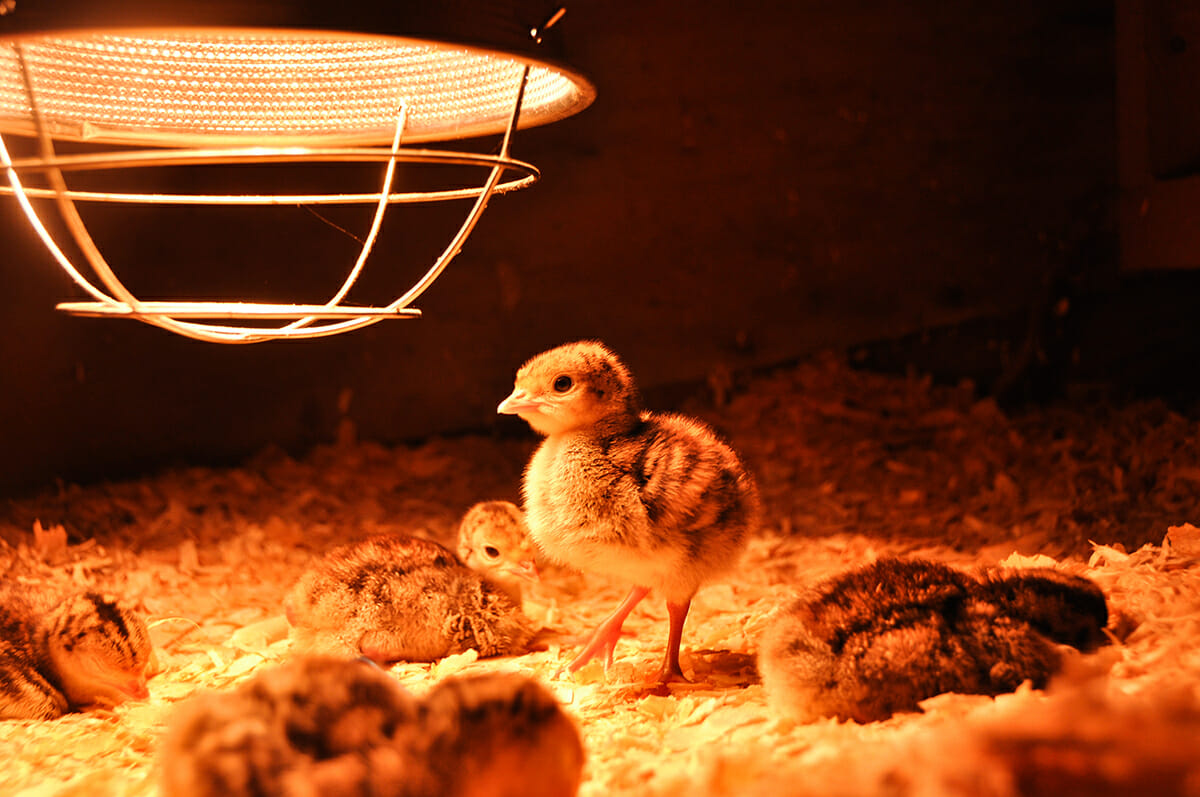
Final Thoughts
After hatching, you can leave your chicks completely dry for 12 to 48 hours.
Leaving chicks in an incubator for more than 48 hours will affect their overall health. Read also, How Old Are Chicks at the Store
Have you ever experienced the peeping of eggs? Share your thoughts and problems with us. We would love to help you.
FAQs
How long can chicks stay in the incubator after hatching?
Chicks can stay in the incubator for up to 24-48 hours after hatching. They can survive without food or water because they absorb the yolk sac just before hatching. The yolk sac provides sufficient nutrients and hydration for the first day or two of life.
What should the temperature and humidity be for chicks that have hatched but are still in the incubator?
After hatching, the temperature in the incubator should remain around 99.5°F (37.5°C). The humidity should be ideally around 65-70%, to ensure that the new chicks remain comfortable and can dry out completely.
Can keeping chicks in the incubator too long be harmful?
Yes, keeping chicks in the incubator for more than 48 hours can be harmful. While they can go without food and water initially, after 48 hours they will need access to both. The lack of adequate ventilation and the accumulation of waste in the incubator can also create an unhealthy environment.
How can I help chicks that are struggling to hatch in the incubator?
Generally, they do not assist chicks during hatching time. Unless it is clear that they are stuck and in distress after a significant period, intervening too early can cause more harm than good. If you must help, make sure to gently peel away shell fragments without injuring the chick or rupturing blood vessels.
What should I do if the humidity drops while chicks are hatching in the incubator?
If the humidity drops while chicks are hatching, quickly and carefully add warm water to the incubator’s reservoir or use a damp sponge to boost humidity. Maintaining high humidity is crucial to prevent the membranes from drying out and sticking to the chicks.
Hello! I’m Ibrahim, the owner and writer of this blog. I run a chicken farm with 160 chickens, and I’ve gained a lot of knowledge about raising and caring for them. Now, I want to share my insights and experiences with you to help you in chicken keeping.

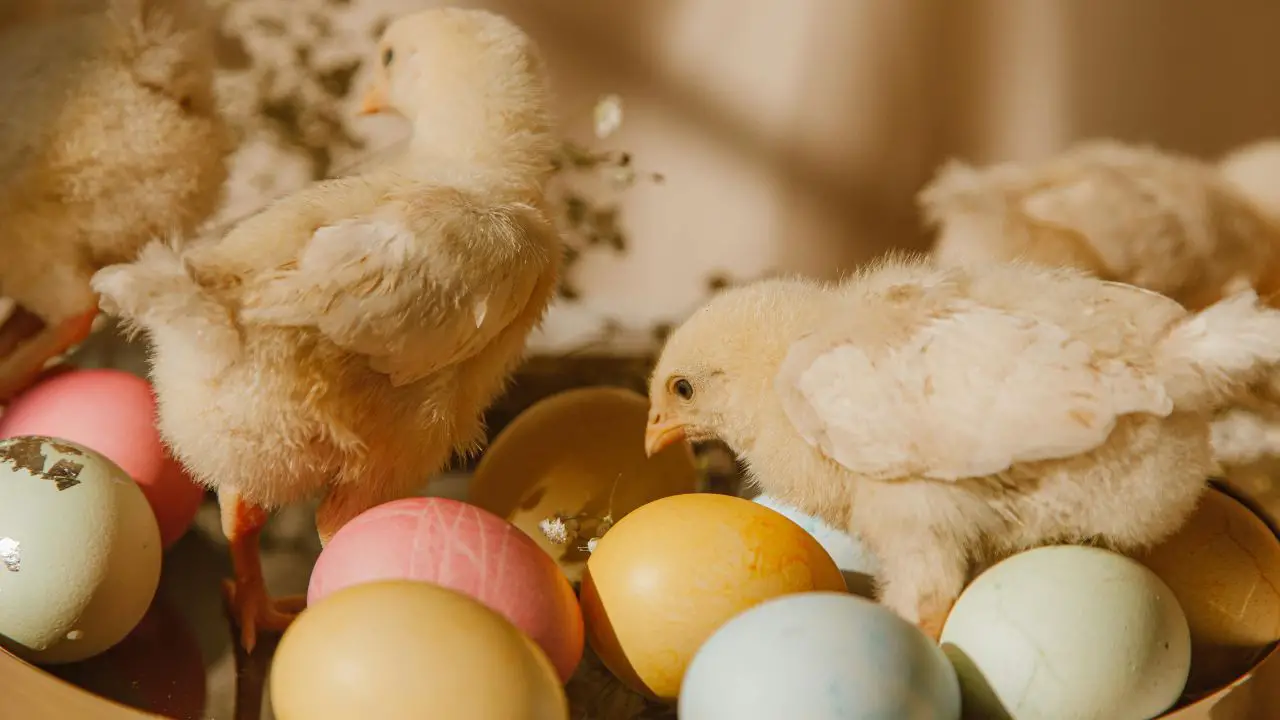
1 thought on “How Long Can Chicks Stay in Incubator?”